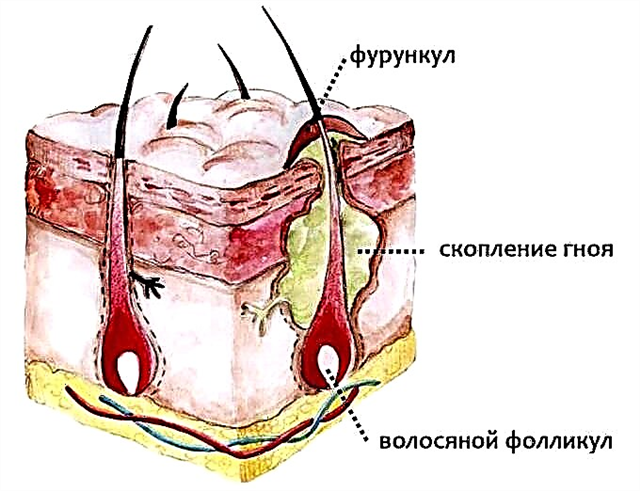 To understand how to treat the throat and whether it is possible to do without antibiotics, it is necessary to understand the nature of the pathology. This is what will be discussed.
To understand how to treat the throat and whether it is possible to do without antibiotics, it is necessary to understand the nature of the pathology. This is what will be discussed.
Factors contributing to a decrease in immunity:
- hormonal changes. A woman's body undergoes colossal changes associated with fluctuations in hormone levels. The altered hormonal background ensures the preservation of pregnancy;
- partial immunosuppression is noted to reduce the risk of rejection of the placenta and fetus;
- depressive states, experiences that are associated with both hormonal fluctuations and an understanding of the very fact of pregnancy;
- lack of nutrients. After digestion, the entire incoming volume of food is divided into two organisms, so the woman is deficient in nutrients, and the fetus, in turn, receives everything it needs for full development.
The reasons for the appearance of a sore throat include:
- a viral disease, for example, ARVI, when a woman may be disturbed not only by soreness when swallowing, but also by malaise, low-grade hyperthermia, dizziness, body aches, nasal congestion and impaired appetite.
- bacterial infection is observed with tonsillitis, when streptococcus affects the tonsils, causing severe clinical symptoms. A woman may complain of severe pain in the oropharynx, febrile hyperthermia and lack of strength.
- traumatic factor (overstrain of the vocal cords - screaming, eating solid food - crackers). Microcracks in the mucous membrane can also cause sore throat.
- irritating factor such as dry, cold air or dust. Long-term exposure to negative factors contributes to irritation of the mucous membrane of the oropharynx and suppression of local immune defense.
The most dangerous of these causes is angina. Due to the presence of a bacterial pathogen, the risk of developing complications of a local and systemic nature increases. With a local infectious and inflammatory process, the throat may hurt due to the appearance of purulent discharge during lacunar, follicular angina, as well as due to the formation of ulcerative defects on the tonsils mucosa or the appearance of abscesses.
The spread of streptococcal infection throughout the body leads to the development of rheumatic fever, cardiac lesions (valvular defects, myocarditis), renal dysfunction, polyarthritis and sepsis. With the generalization of infection, foci with bacterial pathogens are located in many organs, causing multiple organ failure.
To avoid complications, you should consult a doctor on the second day after the onset of a sore throat and the ineffectiveness of home rinsing.
General recommendations for treatment
Please note that the "pregnant" period requires a special approach in the choice of medicines, therefore, a doctor's consultation is required before starting therapy. The effect of medications will be much higher if some recommendations are followed:
- bed rest. A significant limitation of physical activity will provide a quick recovery of the internal forces of the body and increase the immune defense.
- Nutrition should be complete, including plenty of vegetables, fruits, dairy products, white meat and fish. Hard, cold foods should be excluded, which additionally injure the mucous membrane of the oropharynx.
- an adequate drinking regime ensures the active elimination of toxic products, a decrease in fever and replenishment of fluid loss with increased sweating. Suitable for drinking are juices, tea, fruit drink and jelly, which, enveloping the walls of the oropharynx, accelerate healing and protect against damaging factors. The use of carbonated drinks, cold juices and coffee is not recommended.
- vitamin therapy with special complexes for pregnant women.
- regular wet cleaning, airing the room, and humidifying the air.
- lack of communication with sick people.
- it is not advisable to visit public places with a large crowd of people during periods of an influenza epidemic.
 As for the main directions in therapy, here the treatment includes:
As for the main directions in therapy, here the treatment includes:
- fight against an infectious agent;
- elimination of a negative physical factor;
- decreased fever;
- prevention of secondary infection;
- strengthening the immune system;
- reducing the inflammatory response in the throat.
At home, it is prohibited:
- carry out procedures that require a high temperature, for example, hot showers, foot baths, mustard plasters, heating pads or compresses. The use of inhalation requires prior consultation with a doctor, since not all pregnant women are allowed such procedures.
- take antibacterial drugs without observing the dose and duration of the drug course.
- remove film plaque from the tonsils, which leads to the appearance of a bleeding wound, the spread of infection.
- stop taking antibacterial drugs on their own. In this case, the symptoms may disappear, and the infectious pathogen remains, provoking the progression of the disease.
Fight against the pathogen
When confirming the viral or bacterial nature of the development of the disease, antiviral or antibacterial drugs should be taken. The dosage and duration of the therapeutic course is determined exclusively by the doctor.
Of the drugs that have antiviral effect, the following should be distinguished:
- Nazoferon, which is released in the form of a solution for nasal use. The medicine has not only antiviral, but also immunostimulating,
 as well as anti-inflammatory effects. The bottle is equipped with a dispenser, which allows you to accurately maintain the recommended volume. Within 5 days, 2-3 drops should be dripped into each nasal passage three times a day. In order not to get sick, pregnant women can use it in a prophylactic dose.
as well as anti-inflammatory effects. The bottle is equipped with a dispenser, which allows you to accurately maintain the recommended volume. Within 5 days, 2-3 drops should be dripped into each nasal passage three times a day. In order not to get sick, pregnant women can use it in a prophylactic dose. - Engystol is available in tablet form for oral administration. The drug has an antiviral effect and is approved for use in the treatment of viral diseases or for prophylactic purposes. In the acute period of the disease, the pill should be resorbed every 15 minutes for 2 hours. After that, you should go to the scheme of three doses of 1 tablet. The duration of the course is 2 weeks.
Upon confirmation of bacterial damage to the tonsils, the presence of purulent discharge, the doctor prescribes antibacterial agents. Taking into account the duration of pregnancy, the features of its course, as well as the presence of concomitant pathology, the doctor selects the optimal antibacterial agent. In most cases, it is used:
- penicillin series, which is represented by Flemoxin, Augmentin. Medicines are often prescribed during pregnancy due to the absence of side effects both on the fetus, during pregnancy, and on the woman's body.
- a group of cephalosporins, for example, Cephalexin, Cefepim, are used in case of ineffectiveness or the presence of an allergic reaction to penicillins. These antibiotics are not toxic to the embryo.
- macrolides are prescribed when bacterial pathogens are resistant to penicillins, cephalosporins, as well as when a woman is allergic to these medicines. A representative of the macrolide group is Erythromycin, which has a minimal risk of complications.
The choice of an antibacterial agent should be taken very carefully, because many groups of antibiotics are prohibited for use during pregnancy.
Among the toxic drugs, we will single out:
- a group of tetracyclines that are capable of disrupting mineral metabolism. The active substance accumulates in the tooth, bone rudiments and hepatic parenchyma. They quickly penetrate the placenta.
- the fluoroquinolone series, for example, Norfloxacin, after overcoming the placental barrier, damages the ligaments, cartilage, and bone tissue.
- macrolides, in particular, Clarithromycin, are toxic to the embryo.
- aminoglycosides (gentamicin) is capable of affecting the renal structures, hearing organs of the embryo, which is manifested by congenital deafness.
- Biseptol passes through the placental defense, leading to the appearance of mutations, cardiac defects.
Antipyretic drugs
Sore throat during pregnancy may be accompanied by hyperthermia. A woman should strictly monitor temperature indicators, since an increase in temperature of more than 38 degrees increases the risk of embryo hypoxia and the appearance of placental pathology.
If in a viral disease the fever can fluctuate between 36.9-37.5 degrees, then in the case of a bacterial infection, the fever level can reach 40 degrees.
Fighting hyperthermia is necessary when the temperature rises above 37.2 degrees. To do this, a woman can take a warm shower, increase the drinking regime, and also wipe herself off with a diluted solution of vinegar.
With regard to hyperthermia more than 37.5 degrees, you should take antipyretic drugs (antipyretics) based on paracetamol.
Pregnant women should not take antipyretics that include aspirin.
Gargling
One of the most important components of therapy for a sore throat is considered to be the rinsing procedure. The use of solutions with antimicrobial, anti-inflammatory action makes it possible to remove infectious pathogens from the surface of the mucous membrane of the oropharynx, reduce hyperemia, swelling and soreness in the throat.
In order to get the maximum effect from the procedure, you should gargle during pregnancy, adhering to some recommendations:
- the temperature of the solution should not be higher than 45
 degrees, which will avoid burning the mucous membrane of the pharynx;
degrees, which will avoid burning the mucous membrane of the pharynx; - to facilitate the procedure, you need to tilt your head back, pronounce the sound "Y" as long as possible;
- the number of rinses should not be less than 15 times;
- for the procedure, only solutions allowed during pregnancy are used;
- rinsing is repeated every 90 minutes, alternating between the solutions used;
- after the procedure, you should not drink, eat for about half an hour, which will allow the medicine to have a therapeutic effect.
Folk recipes for rinsing
If your throat hurts during pregnancy, the 2nd trimester requires an immediate start of gargling. This will allow to limit the infectious and inflammatory focus within the oropharynx, to suspend the multiplication of pathogenic microorganisms, to prevent the deterioration of the condition and the emergence of new symptoms.
How to gargle with gargle?
- the easiest to prepare and most affordable is a soda-salt solution. It is enough to mix the ingredients with a volume of 5 g, dissolve them thoroughly in warm water (190 ml), and then start rinsing. To enhance the effect of the drug, you can add a couple of drops of iodine, however, in the absence of an allergic reaction to iodine-containing drugs.
- after dissolving 15 g of propolis in warm water (190 ml), you can rinse with the solution twice a day.
- dried blueberry fruits (100 g) should be boiled in half a liter of water until 200 ml of broth is obtained. Used for rinsing twice a day.
- internal intake of sage is prohibited for pregnant women because of its ability to change hormones, increase the risk of uterine bleeding, but its use for gargling brings many benefits. To prepare the solution, it is recommended to insist 10 g of grass in a mug of boiling water. After filtering the broth, you can use it once a day.
- 15 g of calendula or chamomile can be infused in a mug of boiling water for about an hour. Then filter, slightly warm and use for the procedure once a day.
- for a volume of water of about 220 ml, 15 ml of onion juice and the same amount of honey are required. After stirring thoroughly, it can be used for rinsing.

Before using herbs, you must be sure that there is no allergic reaction to this type of plant.
In addition, do not forget about warm milk, honey and ginger root, which can be brewed and drunk once a day. This will not only help reduce sore throat, but also strengthen your immune defenses.
Pharmaceutical rinses
The second trimester of pregnancy allows the use of drugs such as Miramistin, Furacillin, Chlorhexidine, Rotokan, and Chlorophyllipt. For irrigation of the mucous membrane of the oropharynx, Ingalipt is allowed. To temporarily reduce pain, you can dissolve Lizobact or Faringosept.
Regardless of which medicines the pregnant woman chooses for rinsing, the main thing is that if there is no effect, immediately consult a doctor.
 as well as anti-inflammatory effects. The bottle is equipped with a dispenser, which allows you to accurately maintain the recommended volume. Within 5 days, 2-3 drops should be dripped into each nasal passage three times a day. In order not to get sick, pregnant women can use it in a prophylactic dose.
as well as anti-inflammatory effects. The bottle is equipped with a dispenser, which allows you to accurately maintain the recommended volume. Within 5 days, 2-3 drops should be dripped into each nasal passage three times a day. In order not to get sick, pregnant women can use it in a prophylactic dose. degrees, which will avoid burning the mucous membrane of the pharynx;
degrees, which will avoid burning the mucous membrane of the pharynx;


